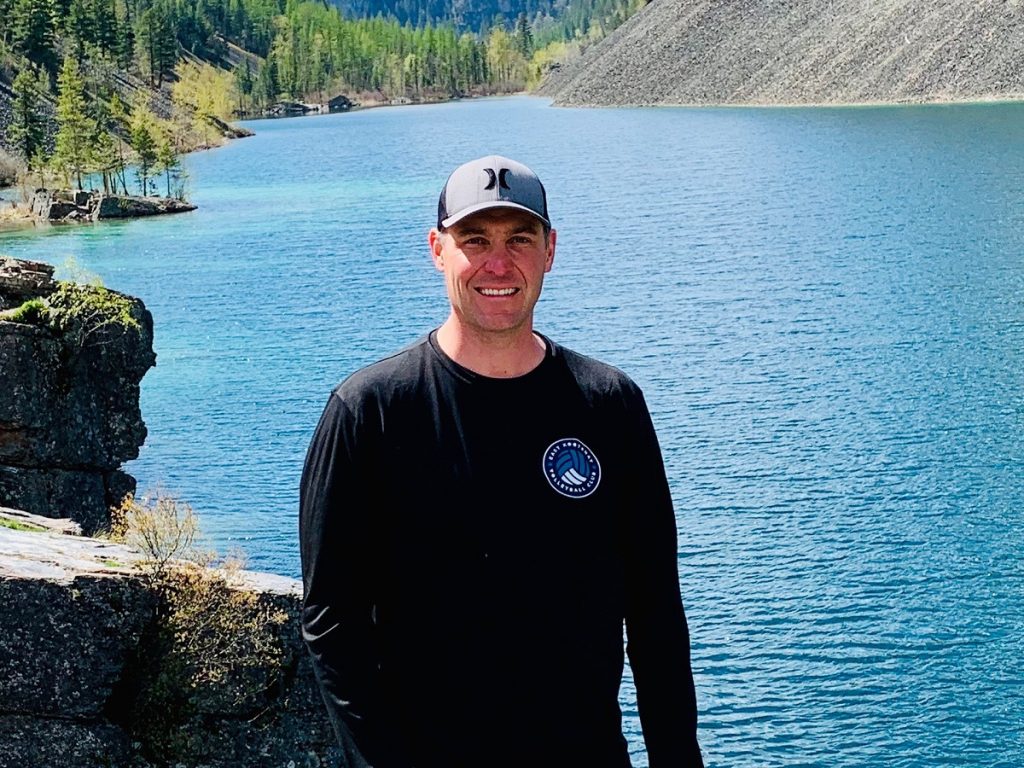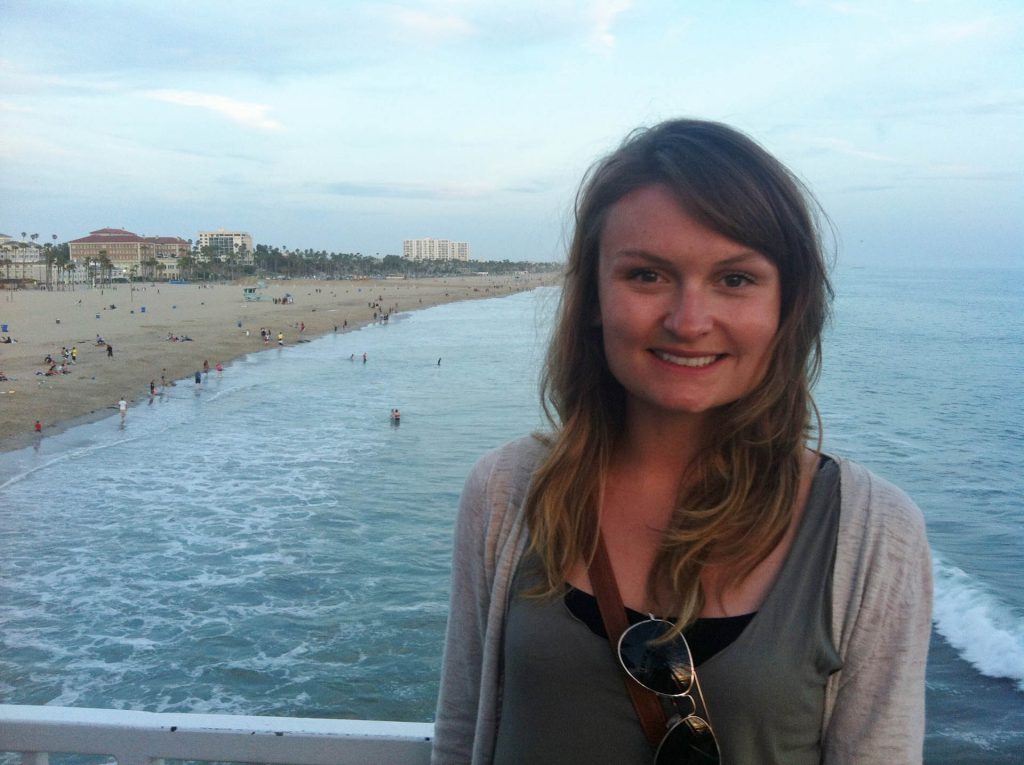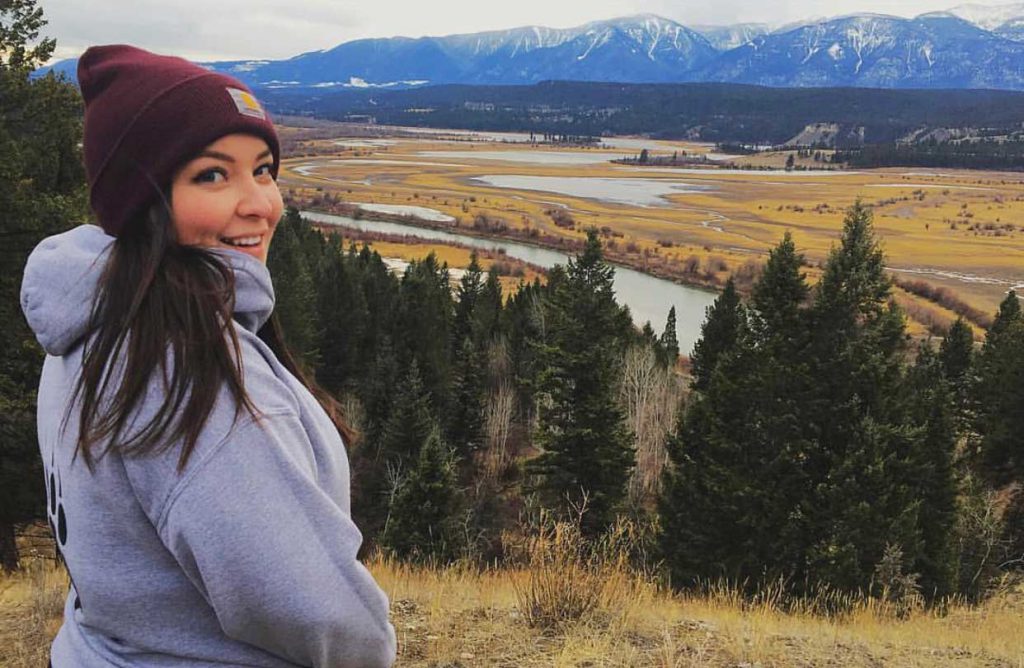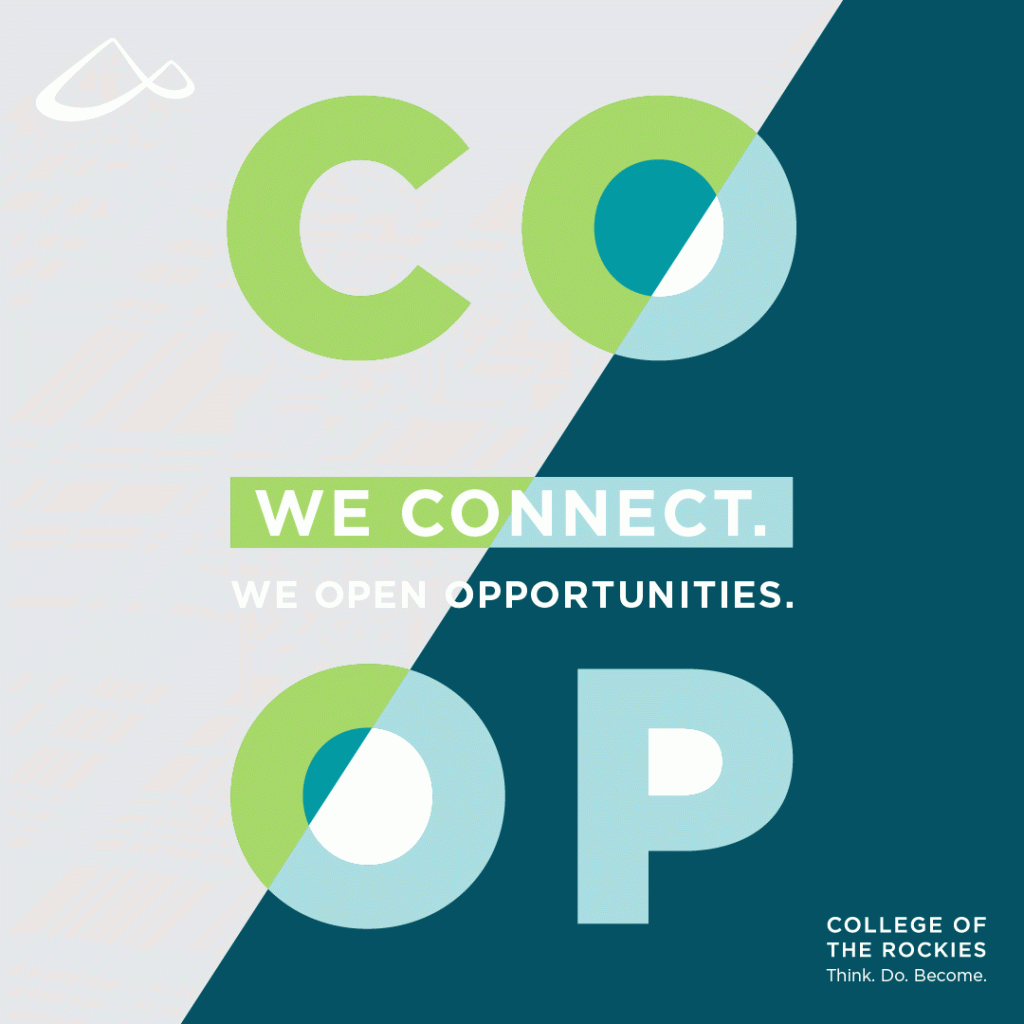Recreation Management Diploma
Recreation is the heart of a community and you can make a positive impact!
Recreation programs create opportunities for people to be active, offering communities many enjoyable ways to stay healthy. Individuals, communities and government organizations are all focusing on ways to help provide healthier choices, so now is the time to get involved and learn the skills to excel in the recreation and leisure services industry.
Loving what you’re learning? Take your diploma and turn it into a degree by laddering into our Bachelor of Business in Sustainable Business Practices program. With the additional flexibility of part-time, full-time, face to face, or online, your career can continue to grow. At this level you work on industry projects, conduct research and deepen your knowledge of sustainability practices desired of businesses. Speak to an Education Advisor to find the path that’s right for you!
Have you been working in a Municipal Recreation Department and feeling that formal education will enhance your career goals? If so, this program is your ideal solution!
Program Overview
Our program is one of the only programs offered in Canada that is available fully online so you can study and earn your diploma while continuing to work.
This program starts in September each year. Part-time students applying in the Winter or Spring semester should select University General Studies as their program when applying.
Program Details
- This program covers a broad range of courses directly related to the recreation industry, as well as management-oriented courses such as: accounting, communications, business management, programming, and marketing.
- Completion in 2 years when studying as a full time (5 courses) student.
- Foundational courses are augmented with industry specific courses
- A work placement provides opportunity to gain hands-on-experience in recreation. It is recommended that domestic students take the co-op work term, while our international students complete the work practicum.
Year 1 Fall Semester
| Course | Title | Credits |
|---|---|---|
| COMP-153 or COMP-154 | Introduction to Data Processing or Computer Applications in Business | 3 |
| COMC-101 or ENGL-100 | COMC 101 Technical and Professional Writing or ENGL 100 English Composition. Note: ENGL 100 may be required for degree-seeking students. | 3 |
| MGMT-204 | Principles of Management | 3 |
| RECR-100 | Leisure and Recreation in Canadian Society | 3 |
| RECR-102 | Leadership and Community Participation | 3 |
Year 1 Winter Semester
| Course | Title | Credits |
|---|---|---|
| COMC-102 | Advanced Professional Communication | 3 |
| MKTG-281 | Principles of Marketing | 3 |
| RECR-150 | Recreational Planning 1 | 3 |
| RECR-231* | Student Work Placement | 3 |
| Elective | Choose one: MGMT 216, COMP 154, MGMT 305, FNST 101, INDG 105, KTUN 100. Students may also choose any elective in University Arts and Science or Business Management that supports their recreation management goals. | 3 |
*Note: Co-Operative Education (CO-OP 100/150) may be substituted for RECR 231.
Total First year = 30 credits
Year 2 Fall Semester
| Course | Title | Credits |
|---|---|---|
| ACCT-263 or ACCT-261 | Financial Accounting for Tourism Majors or Accounting 1 | 3 |
| MGMT-304 | Introduction to Non-Profit Management | 3 |
| RECR-220 | Event Management | 3 |
| RECR-260 | Budget and Proposal Writing | 3 |
| TOUR-240 | Risk Management and Liability in Tourism and Recreation | 3 |
Year 2 Winter Semester
| Course | Title | Credits |
|---|---|---|
| COMC-253 | Intercultural Communications | 3 |
| MGMT-302 | Human Resource Management | 3 |
| RECR-200 | Recreation Programming for Diverse Populations | 3 |
| RECR-210 | Recreation Facility Planning and Maintenance | 3 |
| RECR-250 | Research and Programming | 3 |
Total Second year = 30 credits
Total Credits: 60
Course Descriptions
Year 1 – Semester 1 – Fall
COMC-101 – Technical and Professional Writing
In this introductory course, students develop practical writing skills for the workplace. Activities centre on effective writing styles and offer detailed guidelines on planning, organizing, composing and revising documents for a range of communication tasks. This course reviews some grammar essentials and leads students to be resourceful and successful communicators in traditional and virtual correspondence.
- Minimum Credits: 3
- Length: 45 hours
- Prerequisites: Minimum 65% in either English Studies 12, English First Peoples 12, ENGL 090, or equivalent.
- Delivery Method: ? On-campus, Online
- Cost: $365.28
- Course Outline
ENGL-100 – English Composition
English 100 focuses on composition strategies for writing across academic disciplines. Over the course of the term, students will develop an awareness of how rhetorical situations affect composition and refine their understanding of the fundamentals of essay writing (and clear communication more broadly), including paragraphing, thesis statements, essay structure, and citation methods. Students will also learn the fundamentals of critical thinking and analysis, persuasive writing techniques (including rhetorical appeals and modes), scholarly research, and academic reading.
- Minimum Credits: 3
- Length: 45 hours
- Prerequisites: Minimum 65% in either English 12, English Studies 12, English First Peoples 12, ENGL 090, or equivalent.
- Delivery Method: ? Blended, On-campus, Online
- Cost: $365.28
- Course Outline
MGMT-204 – Principles of Management
This course provides an overview of management. It covers theory, process and practice of the four fundamental management skills: Planning, Organizing, Leading and Controlling, as well as the role of managers in organizations.
- Minimum Credits: 3
- Length: 45 hours
- Prerequisites: Either English 12, English Studies 12, English First Peoples 12, ENGL 090, or equivalent.
- Delivery Method: ? On-campus, Online
- Cost: $365.28
- Course Outline
RECR-100 – Leisure and Recreation in Canadian Society
This course examines the organization and role of leisure, recreation and tourism services in Canada.
- Minimum Credits: 3
- Length: 45 hours
- Prerequisites: Minimum 65% in either English 12, English Studies 12, English First Peoples 12, ENGL 090, or equivalent.
- Delivery Method: ? On-campus, Online
- Cost: $365.28
- Course Outline
RECR-102 – Leadership and Community Participation
This course emphasizes leadership in Recreation and Leisure Services and involves an exploration of leadership and effective practice of theories and concepts. Students examine how Recreation and Leisure Services involve community individuals and groups in community organizations. The different leadership methods in organizations, public groups and service organizations are also examined.
- Minimum Credits: 3
- Length: 45 hours
- Prerequisites: Minimum 65% in either English 12, English Studies 12, English First Peoples 12, ENGL 090, or equivalent.
- Delivery Method: ? On-campus, Online
- Cost: $365.28
- Course Outline
Choose from one (1) of the following:
COMP-153 – Introduction To Data Processing
This course allows students to develop knowledge and skills in the field of information technology. Students will explore the operation and application of professional productivity software. Students use four applications of the Microsoft Office 2019 suite: Word, Excel, Access and PowerPoint. The theory component develops a broad and general understanding of current computer technology, methods and models.
- Minimum Credits: 3
- Length: 60 hours
- Prerequisites: None
- Delivery Method: ? On-campus, Online
- Cost: $365.28
- Lab Fees: $83.73
- Total: $449.01
- Course Outline
COMP-154 – Computer Applications in Business
This course examines information systems theory and utilizes computer technology. Students will explore the application of technology in organizations. Students will investigate information systems, evaluate organizational needs, and develop effective solutions. Security, legal and ethical issues will be examined along with characteristics of professional administration. Microsoft Office applications, including Word, Excel, PowerPoint, Access and Outlook, will be utilized to create effective business artifacts and fulfill organizational needs.
- Minimum Credits: 3
- Length: 75 hours
- Prerequisites: Familiarity with Microsoft Office and basic computing skills, or COMP 153 are recommended.
- Delivery Method: ? On-campus, Online
- Cost: $365.28
- Lab Fees: $83.73
- Total: $449.01
- Course Outline
Year 1 – Semester 2 – Winter
COMC-102 – Advanced Professional Communication
Emphasizing the link between research, rhetorical analysis and effective communication, this course provides an exploration of business writing techniques, presentation styles and research methodologies essential for success in business environments. Students will also gain an understanding on how design and visual elements enhance the readability and persuasiveness of communication practices. Practical application of concepts in real-world scenarios will be a key focus, with the aim of developing a sophisticated and effective communication skill set.
- Minimum Credits: 3
- Length: 45 hours
- Prerequisites: ENGL 100 or COMC 101
- Delivery Method: ? On-campus, Online
- Cost: $365.28
- Course Outline
MKTG-281 – Principles of Marketing
This course defines and examines the marketing process as it applies to marketing products and services in public, private and not-for-profit organizations. Students gain insight into the complex and interdependent variables involved in developing successful marketing strategies. Through case studies, online discussion, simulation, and in class activities, students will plan a marketing strategy for a specific target audience taking into consideration current trends in product mix, communications, and technology.
- Minimum Credits: 3
- Length: 45 hours
- Prerequisites: Either English Studies 12, English First Peoples 12, ENGL 090, or equivalent.
- Delivery Method: ? On-campus, Online
- Cost: $365.28
- Course Outline
RECR-150 – Recreation Planning 1
This course introduces students to the program planning cycle and engages them in creating and implementing effective program plans from the initial needs assessment through to the evaluation of program and facilities. The course will also focus on the ways that recreation programming helps to meet the UN Sustainable Development Goals #3- Good Health & Wellbeing and #11 Sustainable Cities & Communities.
- Minimum Credits: 3
- Length: 45 hours
- Prerequisites: A minimum grade of C- (55%) in RECR 100
- Delivery Method: ? On-campus, Online
- Cost: $365.28
- Course Outline
RECR-231 – Student Work Placement
The work experience provides workplace-based learning opportunities in an industry setting. This allows students to practice the principles and skills learned during classroom study and develop industry competencies. Experiential learning provides the learner with more direct access to industry employees and managers, building networks and establishing career foundations.
- Minimum Credits: 3
- Length: 155 hours
- Prerequisites: A minimum grade of C- (55%) in ENGL 100 or in COMC 101; and in RECR 100.
- Delivery Method: ? On-campus, Online
- Cost: $365.28
- Course Outline
COOP-100 – Workplace Readiness for Co-op Experience
This course prepares students for co-op employment success. Workshop and classroom activities will develop employability skills and job search skills while also preparing the student for contemporary workplace expectations of professionalism and conflict resolution. Students will also be introduced to the reporting requirements of the co-op experience in preparation for a work semester.
- Minimum Credits: 1
- Length: 20 hours
- Prerequisites: 24 program credits completed or in progress.
- Delivery Method: ? Blended, On-campus
- Cost: $121.76
- Course Outline
COOP-150 – Industry Work (Co-op Work Experience)
The Co-op work placement provides a work-based learning experience and opportunity to students. This work placement will further develop employability competencies and enforce the practices and skills gained during classroom studies. Furthermore, this course connects the student with industry practitioners, building employment networks and establishing the foundations of the student’s employment history. An effective workplace environment supports students in developing skills which are essential to their future success.
- Minimum Credits: 3
- Length: 500 hours
- Prerequisites: Students must have completed COOP-100.
- Delivery Method: ? Off-site
- Cost: $365.28
- Course Outline
Choose from one (1) of the following:
You may also choose any elective in University Arts and Science or Business Management that supports your recreation management goals.
MGMT-216 – Organizational Behaviour
In this course students can discover and apply concepts to both explain and influence how people and their organizations work. Specific topics include motivation, perception, personality, emotions, communication, team dynamics, decision making, conflict and negotiation, power and organizational politics, leadership, organizational change and development, organization, and culture.
- Minimum Credits: 3
- Length: 45 hours
- Prerequisites: Either English 12, English Studies 12, English First Peoples 12, ENGL 090, or equivalent.
- Delivery Method: ? On-campus, Online
- Cost: $365.28
- Course Outline
MGMT-305 – Social Enterprise
Sustainable and resilient communities are ones where social, economic, human, environmental and cultural needs and goals are all met. Social enterprises contribute to community development through direct participation in the marketplace and by using the profits produced to support a social purpose. This course introduces the social enterprise concept and challenges students to identify social issues and develop market-driven solutions that benefit all stakeholders. Business planning, leadership and transparent financial reporting are all stressed to ensure social benefits are realized.
- Minimum Credits: 3
- Length: 45 hours
- Prerequisites: A minimum grade of C- (55%) in ENGL 100, or a minimum grade of C- in COMC 101
- Delivery Method: ? Online
- Cost: $365.28
- Course Outline
FNST-101 – First Nations Studies 1
This course is an introduction to the multi-disciplinary field of Indigenous studies. The prehistory, history, and traditional/contemporary cultures of Indigenous peoples in Canada and their various perspectives are addressed. Additionally, the historical overview of Indigenous/settler relations and their effects are explored.
- Minimum Credits: 3
- Length: 45 hours
- Prerequisites: None
- Delivery Method: ? Online
- Cost: $365.28
- Course Outline
INDG-105 – Introduction to Health and Wellness in Indigenous Communities
This course focuses upon an understanding of health and wellness within Indigenous communities, from Indigenous Peoples’ Perspectives. Students examine many factors and conditions that impact Indigenous Peoples’ health stemming from both the individual and collective experiences. Additional focus emphasizes how community health and wellness is articulated and maintained according to Indigenous Peoples Place Based Worldviews and definitions. Indigenous scholarship, including what is referred to as ‘traditional knowledges’ are incorporated alongside interdisciplinary perspectives, privileging Indigenous Peoples’ voices.
- Minimum Credits: 3
- Length: 45 hours
- Prerequisites: Minimum 65% in either English Studies 12, English First Peoples 12, ENGL 090, or equivalent.
- Delivery Method: ? On-campus, Online
- Cost: $365.28
- Course Outline
KTUN-100 – Introduction to the Ktunaxa People
This course is intended to be a comprehensive introduction to the Ktunaxa Nation. The emphasis is on materials identified by the Ktunaxa Nation elders, fluent speakers and cultural consultants that will provide a foundation for informed communication on a range of topics. The course was designed from the perspective asking “what kinds of things do we need to know about each other to have a better conversation in the age of Truth and Reconciliation?”
- Minimum Credits: 3
- Length: 45 hours
- Prerequisites: None
- Delivery Method: ? On-campus
- Cost: $365.28
- Course Outline
Year 2 – Semester 1 – Fall
MGMT-304 – Introduction to Non-Profit Management
This survey course is designed to introduce students to the areas of responsibility of managers of non-profit organizations and is intended to provide a broad overview of the management challenges of the non-profit sector. Topics include scope and function of the non-profit sector; an overview of financial management; human resources management; strategic planning; and marketing functions within the non-profit sector. Specific issues are emphasized, such as accountability, board selection, volunteer management and fundraising.
- Minimum Credits: 3
- Length: 45 hours
- Prerequisites: A minimum grade of C- (55%) in ENGL 100 or in COMC 101.
- Delivery Method: ? Online
- Cost: $365.28
- Course Outline
RECR-220 – Event Management
This course explores and develops ideas and concepts utilizing a linear or cyclical planning model, and focuses on the details required when planning an event. Emphasis is placed on the planning of events with research into selecting the appropriate event, establishing goals and objectives, event themes, site selection, task and responsibility checklists, organizational committee structures, risk management strategies, budgeting and finance, sponsorship opportunities, marketing and promotion, event evaluation and event administration.
- Minimum Credits: 3
- Length: 45 hours
- Prerequisites: A minimum grade of C- (55%) in MKTG 281; and a minimum grade of C- (55%) in either ENGL 100, COMC 110 or COMC 101.
- Delivery Method: ? On-campus, Online
- Cost: $365.28
- Course Outline
RECR-260 – Budget and Proposal Writing
This course examines methods of understanding and developing basic budgets as well as obtaining funding and community support through presentations, both oral and written. The focus is on how to develop budgets and proposals for obtaining grants, foundation funding and sponsorship.
- Minimum Credits: 3
- Length: 45 hours
- Prerequisites: Minimum 65% in either English 12, English Studies 12, English First Peoples 12, ENGL 090, or equivalent. RECR 150, and COMP 153 with a minimum grade of C- (55%).
- Delivery Method: ? On-campus, Online
- Cost: $365.28
- Course Outline
TOUR-240 – Risk Management and Liability in Tourism and Recreation
This course will familiarize students with concepts of risk management and legal liability as they apply to the business of tourism and recreation. The course introduces students to Canadian Law and liability issues that may arise for tourism industry professionals and other businesses. Students will also learn about ways to minimize risk and liability.
- Minimum Credits: 3
- Length: 45 hours
- Prerequisites: A minimum grade of C- (55%) in ENGL 100 or in COMC 101; and in TOUR 111 or in RECR 100.
- Delivery Method: ? On-campus, Online
- Cost: $365.28
- Course Outline
Choose one (1) of the following:
ACCT-261 – Introductory Financial Accounting 1
This course introduces students to the basic accounting cycle including preparation of useful financial statements. Students will analyze and record business transactions, create financial statements, and journal entries. Other topics include accounting for cash, receivables, inventory, and payroll.
- Minimum Credits: 3
- Length: 45 hours
- Prerequisites: Either English Studies 12, English First Peoples 12, ENGL 090, or equivalent. Minimum 60% in either MATH 080, MATH 082, Workplace Mathematics 11, Foundations of Mathematics 11, Pre-Calculus 11, Apprenticeship Mathematics 12, Foundations of Mathematics 12, Computer Science 11, Computer Science 12, Pre-Calculus 12, Statistics 12, Geometry 12, or equivalent.
- Delivery Method: ? On-campus, Online
- Cost: $365.28
- Course Outline
ACCT-263 – Financial Accounting for Tourism Majors
This course is designed to teach non-accounting majors to understand the accounting records of a small business and/or to give them the opportunity to use an accounting software program. Concepts, terminology and principles are introduced at a basic level. Topics include revenue and expense recognition, cash vs. accrual accounting, the accounting cycle and analysis of financial statements and other financial information.
- Minimum Credits: 3
- Length: 45 hours
- Prerequisites: Either English 12, English Studies 12, English First Peoples 12, ENGL 090, or equivalent .Recommended: Minimum 60% in either MATH 080, MATH 082, Foundations 11, Pre-Calculus 11, Essentials 11, Applications 11, Principles 11, Computer Science 11, Computer Science 12, Foundations of Math 12, Pre-Calculus 12, Geometry 12, Statistics 12, or equivalent.
- Delivery Method: ? On-campus, Online
- Cost: $365.28
- Course Outline
Year 2 – Semester 2 – Winter
COMC-253 – Intercultural Communication
This course explores the inherent relationship between culture, language and communication. The key concepts of study are identity, culture, assumptions and stereotypes, beliefs, value systems, and globalization. From theory to practice, students will investigate the impact of identity and context in intercultural interactions. The focus of this course is to help students develop meaningful strategies to communicate in today’s culturally diverse communities.
- Minimum Credits: 3
- Length: 45 hours
- Prerequisites: ENGL 100 or COMC 101 or equivalent with instructor permission.
- Delivery Method: ? Blended, On-campus, Online
- Cost: $365.28
- Course Outline
MGMT-302 – Human Resource Management
This Human Resource Management course covers planning, recruitment, selection and placement; job analysis, job description and job evaluation; compensation and performance appraisal plans; employee benefit programs; training and education programs and employee rights, labour relations, personnel planning and evaluation.
- Minimum Credits: 3
- Length: 45 hours
- Prerequisites: A minimum grade of C- (55%) in ENGL 100, or a minimum grade of C- (55%) in COMC 101
- Delivery Method: ? On-campus, Online
- Cost: $365.28
- Course Outline
RECR-200 – Recreation Programming for Diverse Populations
This course explores the history and background of programming for diverse populations, examining how recreation and physical activity are structured for diverse groups such as those with physical and mental disabilities. Students explore how inclusive recreation practices foster active participation across all abilities, underscoring the significance of universal design principles in creating programs accessible to a wide range of individuals.
- Minimum Credits: 3
- Length: 45 hours
- Prerequisites: A minimum grade of C- (55%) in RECR 150.
- Delivery Method: ? On-campus, Online
- Cost: $365.28
- Course Outline
RECR-210 – Recreation Facility Planning and Maintenance
This course examines the impact of design, programming and operation of recreation areas, facilities and services on users’ attitudes and behaviours. How recreation facility planning in Indigenous communities can be developed to maintain a connection to the land and ways that facility planning and maintenance helps to meet the UN Sustainable Goals #7 Affordable and Clean Energy and #9 Industry, Innovation and Infrastructure.
- Minimum Credits: 3
- Length: 45 hours
- Prerequisites: RECR 100 and RECR 150 and RECR 260 with a minimum grade of C- (55%)
- Delivery Method: ? On-campus, Online
- Cost: $365.28
- Course Outline
RECR-250 – Research and Programming
This course is a continuation of RECR 150 with a special emphasis on assessing recreation needs, planning, implementing and evaluating programs. It builds upon the foundations of program development established in RECR 150 and continues the study of the UN Sustainable Development Goals #3 Good Health & Wellbeing and #11 Sustainable Cities & Communities. Students are introduced to needs assessment research methods and develop a research project from start to finish. Development of a questionnaire, administering a questionnaire, evaluation and interpretation of research data and writing a research report are explored.
- Minimum Credits: 3
- Length: 45 hours
- Prerequisites: A minimum grade of C- (55%) in RECR 150
- Delivery Method: ? On-campus, Online
- Cost: $365.28
- Course Outline
Admission Requirements
Academic Requirements:
- Secondary school graduation or equivalent.
- Minimum 65% in either English Studies 12, English First Peoples 12, ENGL 090, or equivalent.
- RECR 231 requires CPR-C and Occupational First Aid Level 1 before work placement.
Recommended:
- Either Principles of Math 11, Foundations of Math 11, Applications of Math 12, MATH 080, MATH 082, or equivalent.
- Basic computer skills are recommended.
Your Costs
Tuition and Fees for Domestic Students:
For the 2024/25 academic year (2024/SU, 2024/FA, 2025/WI, 2025/SP)
| Tuition Year 1: | $3,652.80 |
| Tuition Year 2: | $3,652.80 |
| Application Fee: | $30.00 |
| Student Association Fee: | $138.00 |
| Bus Pass Fee: | $177.60 |
| Lab Fee: | $83.73 |
| Health and Dental Fee: | $480.00 |
| Total | $8,214.93 |
*These prices are for domestic students and may not be 100% accurate. However, these estimates will give you an adequate idea of tuition and fees for our programs. These prices do not include textbook costs. All prices are subject to change. Tuition fees include an alumni fee, student activity fees, and a student technology fee. In certain cases a materials and supply fee may also be included. For more information, visit: Tuition and Fees.
Tuition and Fees for International Students:
For the 2024/25 academic year (2024/SU, 2024/FA, 2025/WI, 2025/SP)
| Tuition Year 1: | $15,864.90 |
| Tuition Year 2: | $15,864.90 |
| Application Fee: | $100.00 |
| International Fee: | $100.00 |
| Student Association Fee: | $138.00 |
| Bus Pass Fee: | $177.60 |
| Lab Fee: | $83.73 |
| Health and Dental Fee: | $480.00 |
| Guard.me Insurance: | $270.00 |
| Total | $33,079.13 |
*These prices are for international students and may not be 100% accurate. However, these estimates will give you an adequate idea of tuition and fees for our programs. These prices do not include textbook costs. All prices are subject to change. Tuition fees include an alumni fee, student activity fees, and a student technology fee. In certain cases a materials and supply fee may also be included. For more information, visit: Tuition and Fees.
Career Info and Pathways
A career in recreation management can see you working in:
- Community centres
- Health-care facilities
- Government and Municipalities
- Correctional institutions
- Sports and fitness clubs
- Resorts
- Tourism companies
- Recreational facilities
Here are just a couple of career options that may be available to you:
- Coach
- Sports Official/Referee
- Other Assisting Occupations in Support of Health Services * (i.e., rehabilitation aid)
With additional education/experience, you may also be eligible for careers such as:
- Recreation, Sports, and Fitness Program Service Director
- Recreation, Sports, and Fitness Policy Researchers, Consultants, / Program Officer
- Facility Operation / Maintenance Manager *
- Kinesiologist / Other Professions in Therapy and Assessment
* High Opportunity Occupation
Tourism or Recreation Management Diploma – Block Transfer Agreements
| To Institution | Program | |
|---|---|---|
| College of the Rockies | Bachelor of Business Administration – Recreation Management Diploma | Transfer Planning Form |
| College of the Rockies | Bachelor of Business Administration – Tourism Management Diploma | Transfer Planning Form |
| ACADIA University | Bachelor of Community Development (BCD) Note: Students who have completed the diploma may apply for advanced standing directly into the third year of the BCD if they meet AU’s entrance criteria and have obtained a minimum AU’s GPA of 3.0 (B or 70%), COTR GPA of 5 (B- or 50%)with no course completed with a grade lower than a C (for general enrollment). | Transfer Agreement |
| Capilano University | Bachelor of Tourism Management Note: Please refer to transfer agreement for program requirements. | Transfer Agreement |
| Langara College | Bachelor of Recreation Management Note: Please refer to program requirements. | Transfer Agreement |
| North Island College | Bachelor of Business Administration | Transfer Agreement |
| Royal Roads University | Bachelor of Arts in Global Tourism Management Note: Requires individual assessment. In addition student must successfully complete this program with a minimum “B” (3.00/4.33) GPA. | Transfer Agreement |
| Royal Roads University | Bachelor of Arts in International Hotel Management Note: Requires individual assessment. In addition student must successfully complete this program with a minimum “B” (3.00/4.33) GPA. | Transfer Agreement |
| University of Northern British Columbia | Bachelor of Arts – Nature Based Tourism Management Note: Requires B- or 2.67 GPA for admission. For additional information about this transfer visit BC Transfer Guide website | |
| Vancouver Island University | Bachelor of Tourism Management Note: Students are required to have a minimum C+ average and a minimum C grade in individual courses. | Transfer Agreement |
Meet Your Instructors
Celebrating Our Alumni
Program Details
Delivery Method:?
Blended, Online, Off-site
Credential:
Diploma
Categories:
Block Transfer Agreements with Other Institutions, Health & Human Services, Tourism, Recreation & Hospitality
Interests:
Care for Others, Not Have a Desk Job, Start or Run Your Own Business, Teach Others, Work Outdoors, Work With My Hands
Contact Details
Cranbrook
2700 College Way,
Box 8500, Cranbrook, BC, V1C 5L7
Phone: 250-489-2751
Toll-free: 1-877-489-2687
Email: info@cotr.bc.ca






